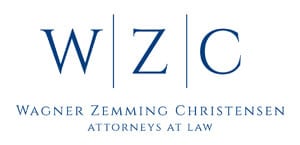Employer Law Newsletter
Employer Law Newsletter
Interviewing Job Applicants
It is essential for employers to receive the information they need about prospective employees in order to make the best decision about who has the best qualifications to meet their employment needs. However, there are certain types of information that employers are either not allowed to gather about job applicants or are restricted in their use. Thus, employers need to develop fair hiring practices to ensure consistency in the process and compliance with the law.
Testing
Employers are permitted to require job applicants to submit to limited types of testing, including:
- Physical fitness and agility exams
- Illegal substances tests
- Personality tests, so long as they do not ask questions about a person's mental health or past drug or alcohol use
Employers may not require applicants to undergo medical exams until after a job offer has been made. Even then, the testing must be requested of everyone working in the same job category, regardless of whether or not they have a disability.
Private employers are not allowed to force job applicants to take polygraph examinations (i.e. lie detector tests). In limited situations, government employees working in certain security fields may be required to take them.
Background Checks
Under the Fair Credit Reporting Act (FCRA), employers may not request a job applicant's credit report without first receiving permission from the applicant to obtain a copy of the report. The ability of employers to receive copies of applicants' criminal background and driving records may be limited by state law to certain purposes or to certain classes of employers.
Interview Questions
Federal antidiscrimination and other laws limit the types of questions employers may ask during interviews. For example, employers are prohibited from asking job applicants if they have filed worker's compensation claims, have any health problems or mental or physical disabilities.
Employers also may not ask questions related to:
- Racial or ethnic background
- Religious preferences
- Age, including when they graduated from high school
- Group affiliations and memberships
- Marital status, former names
- Desire to have children, or the number and ages of current children
- Pregnancy
- Military service
Employers also may not ask whether an applicant has ever been arrested, if the applicant smokes or drinks or was born in the United States.
Employers, however, may ask applicants if they have ever been convicted of a crime, if they can provide evidence of eligibility to work if they are hired and if they can perform essential job functions, with or without reasonable accommodations.
Employers should make sure that the questions they ask during interviews relate to the applicant's ability to perform the duties and functions of the job. Personal questions should be avoided.
For help developing fair hiring practices or for assistance with other employment legal matters, contact an experienced employment law attorney in your area today. He or she can help you meet your obligations under all applicable laws.
How Employment Law Attorneys Can Help Employers
To read and print out a copy of the checklist, please follow link below.
How Employment Law Attorneys Can Help Employers
You can download a free copy of Adobe Acrobat Reader here
Copyright © 2008 FindLaw, a Thomson Reuters business
DISCLAIMER: This site and any information contained herein are intended for informational purposes only and should not be construed as legal advice. Seek competent counsel for advice on any legal matter.


